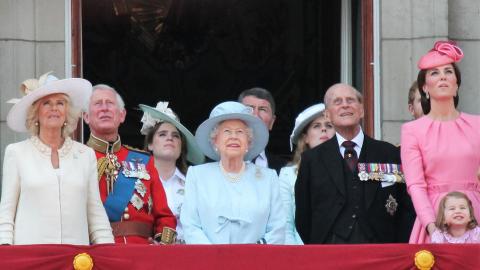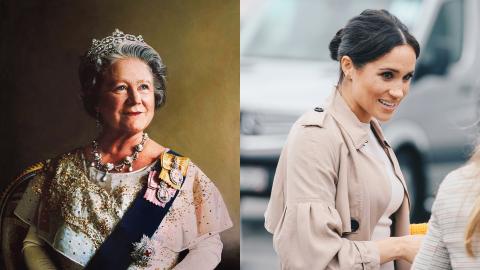George IV
The eldest son of George III and Charlotte, George was born in August 1762.
George Augustus Francis Hanover was born on 12 August 1762 to King George III and Queen Charlotte at St James's Palace, London. As their eldest child and heir, he became the Duke of Cornwall and Duke of Rothsay at birth. When he was a few days old, he was given the titles Prince of Wales and Earl of Chester.
Educated at the palace, he proved to be an extremely talented student and learnt German, Italian and French in addition to his native English. At the age of 18 years, he was given his separate establishment, which quickly led to friction with his father who lived a modest lifestyle. George followed a life of dissipation and wild extravagance filled with heavy drinking, numerous mistresses and escapades.
At the age of 21 years, he was awarded a grant of £60,000 from Parliament and an annual income of £50,000 from his father but this was too little for his partying lifestyle and extravagant interior tastes. As a result, his father became more frugal leading to more animosity.
He had many mistresses and he secretly married his first wife, Maria Fitzherbert, in 1785 when George was 23 years-old and his wife 29 years. The marriage was declared illegal at his father's behest, as Maria was a Catholic, and George would have been ineligible to reign with a Catholic wife. It was also deemed void as the King had not been asked for his permission - in this period nobles and royalty had to gain permission from the ruling monarch to marry.
In the summer of 1788, George III, who is now thought to have had porphyia, became deranged and became a threat to his own life meaning he could not rule. Due to this crisis, Charles James Fox declared in Parliament that the Prince of Wales should rule as a regent in his father's place. After a heated debate, George became the Prince Regent.
In 1795, he married his cousin Caroline of Brunswick. Their marriage was not a happy one. George felt forced into the marriage by his father who refused to pay off his son's mounting debts if he did not wed Caroline. The couple had one daughter, Charlotte, born in 1796, but Caroline took the child and moved to Italy. She returned to claim the rights of Queen when George succeeded to the throne, but George had her barred from his coronation.
George remained attached to Fitzherbert for the rest of his life, although he did take other mistresses. His only legitimate child Charlotte died in childbed in 1817 but he did father numerous illegitimate children.
In constant opposition to his father, George associated closely with the Whigs, particularly Charles James Fox. He broke his connection with them once he came to power in 1820, however.
George seems to have been generally more concerned with keeping mistresses and spending lavishly, than with politics. His extravagances came at a time of social distress and general suffering, following the Napoleonic Wars, and the colossal changes brought by the industrial revolution, and he was popularly hated for his dissolute lifestyle.
However, he had his father's immense book collection donated as the foundation of the British Museum Library and his liking for building projects inspired the "Regency" style of architecture.
George seems to have been a contradictory personality. The Duke of Wellington described him as "... the most extraordinary compound of talent, wit, buffoonery, obstinacy, and good feelings, in short, a medley of the most opposite qualities, with a great preponderance of good - that I ever saw in any character in my life."
He died on 26 June 1830 after a series of strokes caused a haemorrhage in his stomach. His brother William inherited the throne as George left no living heir.
















